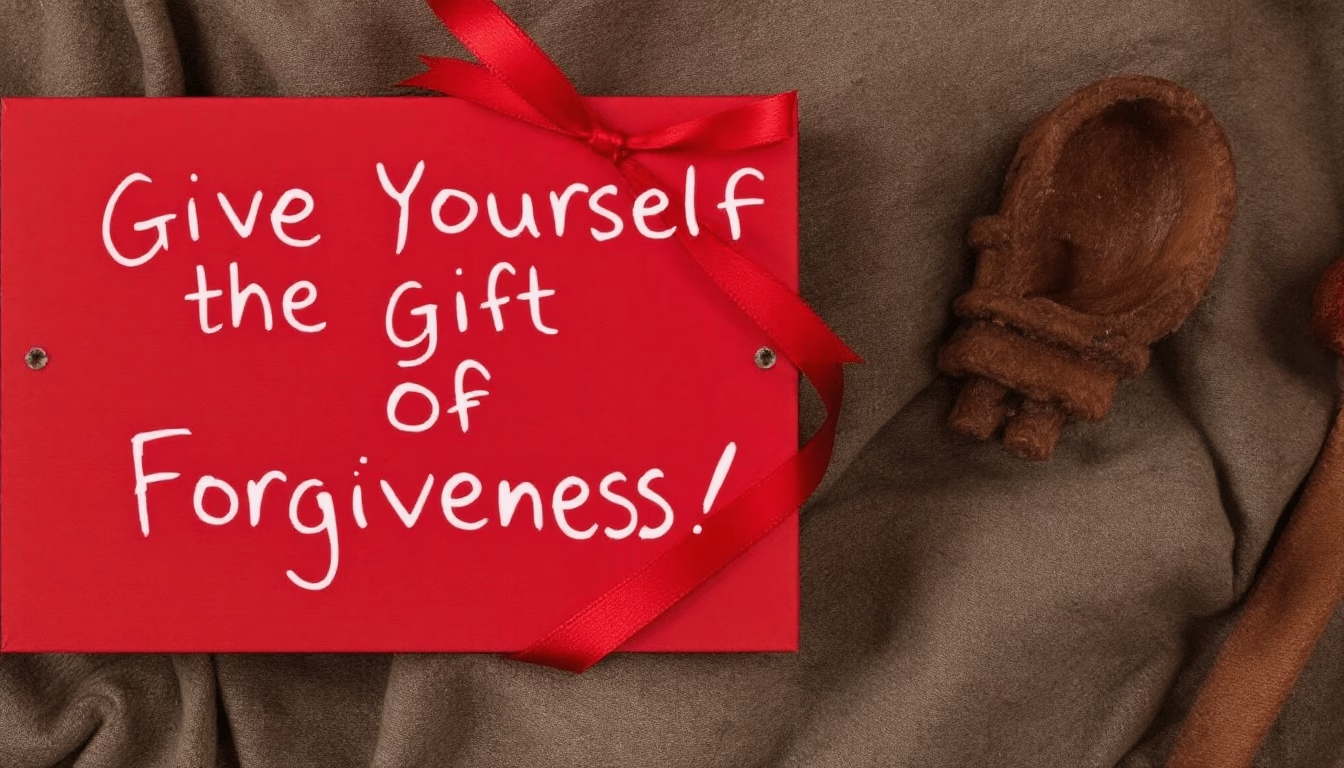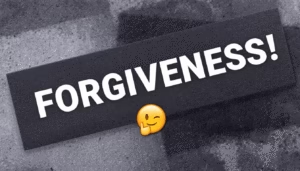Since we are little, we are taught to ask for forgiveness, but rarely do we speak to ourselves about forgiving others. It is an action that heals the feelings of helplessness, anger, and resentment that we may have in front of a certain person. When you forgive, your mind and spirit calm down, and you achieve greater emotional stability.
The Power of Forgiveness:
Unlock Your Potential with YOLO DNA Health!
Forgiving the other does not imply that the relationship will be fixed. Forgiveness is a personal act; you do not need to speak to the person directly. It also does not imply that you must approve of what that person did; it simply consists of accepting that sometimes people act in the wrong way (for us).
“The weak can never forgive. Forgiveness is the attribute of the strong.” – Mahatma Gandhi
The act of forgiving is related to acceptance. Acceptance internally, the first step to forgiving is to understand what hurt you, learn from it, and let it go, not sticking to the situation, because if not, resentment and the victimizing mode will continue to accompany you. What we seek when forgiving is to find peace, leave what happened behind, and not feel resentment. That is why we say that it is an act of acceptance internally. You forgive yourself, not the other.
If, for whatever reason, you decide not to forgive, keep in mind that, in a way, it is as if you were giving the other “the power” to influence you and direct your emotions. Living in spite, victimization, and revenge mode does not solve the problem, and it does not allow you to move forward. Let me remind you that you are the only one responsible for your happiness. You and only you decide how to live with what happens to you, and you have the capacity and tools within you to regain peace.
To forgive life
Sometimes it can also happen that the person who offended one is no longer among us, such as deceased parents who may have treated one badly. It can also be the case that the person who injured one does not feel that he has done something wrong. How can you then move on?
– It is about self-knowledge and that you reflect on what has happened: “I react to what has happened in this way.”
But it is important to think ahead as well. What is best for me right now? If I continue to be sad and angry and disappointed, then what does my life look like then?
If we can be reconciled, it will release so much more energy and love. But the reconciliation requires time and a long process to be able to be genuine and honest.
– You can also be reconciled with what has happened, but perhaps never with the person who offended you.
It is also a process of reconciling with life itself.
“law of mirror” The Mirror Rule
Unlock profound insights with ‘The Law of Mirror,’ a transformative book authored by Yosinori Noguti. This compelling read delves into the concept of the mirror rule, which teaches how our external world reflects our internal thoughts and beliefs.
What are the benefits of the act of forgiving?
We have already commented that one of the almost immediate consequences of forgiving is that our thoughts of anger, pain, and resentment are appeased, and with it, calm and serenity come to our hearts.
Putting aside and burying those thoughts that hurt you makes you focus on what you need, which is to regain your stability and emotional well-being.
It allows you to advance on your path of self-knowledge by understanding more about your emotions, your needs, your values, in short, your essence.
Sometimes, if the emotions of rage and revenge are continued over time, you may have physical sensations, and your body also suffers from it. When we forgive, these feelings gradually disappear, and our body feels free.
When we forgive, we connect with our ability to love. Think about it, loving the one who has hurt you is an act of bravery on your part, which makes you put yourself to another height and see the situation from the outside, without clinging to destructive thoughts.
By forgiving, we focus on positive and more productive thoughts, which help us see the person and their actions differently. And when your mind focuses on these types of thoughts, the feelings of security return to your body, gradually making you feel serenity, well-being, peace, and, ultimately, that you are satisfied with what you have done.
The eight steps to forgiveness:
There is a lot of literature on forgiveness and the act of forgiving, but without a doubt, one of the texts that I like the most in this regard is the one that deals with the book The Law of the Mirror by author Yoshinori Noguchi. In it, they tell us how we can put into practice the act of forgiveness through the following exercise. First, recall the person you want to forgive:
Step 1: Set limits on the person who is hurting you. Stay away from her and put a physical and emotional distance.
Step 2: Unburden yourself and write down your feelings and emotions of anger, frustration, resentment, or even hatred on a sheet of paper. Be explicit, write on paper all the phrases that come to your mind, and get them out of you. It is good that you connect with the sadness and anguish that the situation is causing you, and let it flow. If you need to cry, do not hold back. When you are done, you can tear/burn/throw away the paper. What you have written there no longer belongs to you; you are freeing yourself from it.
Step 3: Understand the motivations of the person who has hurt you. Was he running from some pain? Or looking for some pleasure? Write on another paper about the reasons that you think have led that person to do what they have done. The more you write, the better. He thinks that perhaps he did it because of his emotional immaturity.
Step 4: Express appreciation. Write on another page the things you can be thankful for about that person. Even if they are insignificant, take your time to reflect on them.
Step 5: Recite words of gratitude. Even if this feeling is not strong in you yet, repeat it several times and better aloud “Thank you very much (name of person)”.
Step 6: Apologies. Write on another page everything you want to apologize to that person for. Connect with your humility. Just as they have made mistakes with you, you may have to.
Step 7: Analyze what you have learned. Write down everything you have learned during your relationship with this person and answer the question, “If I met such a person again, how would I act?”
Step 8: Repeat (name the person), I forgive you to be free, I forgive you to be happy, I forgive you to be at peace.
“Forgiveness is not an occasional act; it is a constant attitude.” – Martin Luther King Jr.
Forgive yourself for not being able to forgive
Sometimes it happens that no matter how much you apply these steps, you do not find peace. It may be that you are still too attached to the person and/or situation that has damaged you, or that you get stuck in one of the steps and do not advance. Nothing happens; you are not prepared. Permit yourself to do so, and forgive yourself for not being able to forgive, yet.
Forgiveness according to psychology
We all have several preconceptions about what forgiveness is. “Forgive?”, “What is solved with that?” “After what he did to me?” “That is unforgivable!” Are these the most common phrases heard about it? However, forgiveness is the threshold that allows us to jump over resentments and be free to live with greater peace and happiness.
On the other hand, according to medical research, forgiving is good for physical health. Indeed, the data indicate that those who insist on not forgiving are more likely to die of heart disease than people who accept that in life there are misunderstandings and collisions with others whose effects can be neutralized.
Aromatherapy Diploma Course
The Centre of Excellence‘s Aromatherapy Diploma Course offers a comprehensive guide to understanding essential oils and their healing properties. It is designed for beginners and those looking to deepen their knowledge of aromatherapy practices.
Conclusion:
Forgive not because others deserve it, but because you need to be free from them; you deserve to turn your heart away from hatred, bitterness, and resentment. In this way, you will be able to be free and at peace, guaranteed!
Forgiveness is an extraordinarily complex issue that involves many beliefs, and it only depends on each one, since it is a very personal decision, and each person is responsible for whether they decide to take action; letting go, traveling light for this life, is an important practice to be happy. Forgiveness helps one to deal with it so that it no longer hurts as much and does not become an obstacle to a good life for oneself and one’s relationships.
“Give yourself the gift of forgiveness!“
Curiously, asking for forgiveness and forgiveness is free, but it is something that generally costs a lot … Believe me, I could not stop writing, it is a very extensive topic … it is hard to forgive.
And what do you think? Is it easy or difficult for you to forgive?
Body, Mind, And Soul For A Fulfilled Life!








